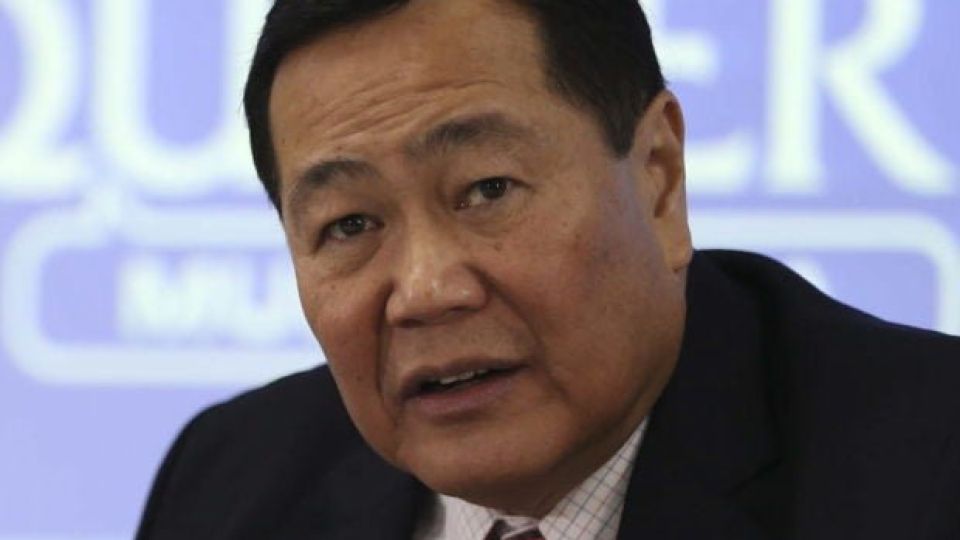July 28, 2023
MANILA – Retired Supreme Court Associate Justice Antonio Carpio on Thursday said the government should immediately start a campaign to win over members of the United Nations before asking them to vote against Chinese harassment in the West Philippine Sea (WPS) and to uphold the 2016 arbitral award in favor of the Philippines.
He said “it’s too early” to bring the Philippine case to the UN General Assembly (UNGA) in September, when it holds its annual meeting, as the country would most likely not get majority of the votes.
“We should not put a deadline,” he told the Inquirer. “We should make our move when we have the votes. It will take time.”
“[But] we should make the decision now, that this is our plan, and then we implement it and once we achieve the number of votes, that’s when we formally ask for a vote,” Carpio said.
A Senate resolution that supports Carpio’s stand has been filed and is being debated.
But President Marcos was skeptical about how such a resolution from lawmakers “would translate to any action that will reach the United Nations General Assembly” to move its members to stop China from harassing Filipinos in the West Philippine Sea.
“Speaking on foreign policy is not set by the legislature. Generally speaking, foreign policy is left to the executive,” he said. “The United Nations entertains governments, not parts of government—not the judiciary, but the executive.”
Mr. Marcos was speaking with reporters in Kuala Lumpur, Malaysia, where he was on a state visit.
Seeking a UNGA vote on the dispute between the Philippines and China was on the “menu of options” of the Department of Foreign Affairs (DFA), according to Foreign Undersecretary Antonio Morales, who told a forum on Wednesday.
22 so far
He said that so far, only 22 percent of UN member states have expressed support for the arbitral court ruling that invalidated China’s expansive claims to nearly the entire South China Sea, including the West Philippine Sea, waters within the country’s 370-kilometer exclusive economic zone (EEZ)
He said there were “many steps that we have to take, many actions, many positions that we have to determine before we go that route.”
Without a clear decision yet from President Marcos on the proposal to take China before the UNGA, Morales said “all options are open” and further study would be made on Carpio’s suggestion.
Carpio had said that the country must call out China’s “aggressive” actions against Philippine vessels in the South China Sea, one of which involved the use of a military-grade laser that temporarily blinded the crew of a Philippine Coast Guard ship in February this year.
The UNGA would be the best place to urge China to comply with the award that reaffirmed Manila’s sovereign rights over its EEZ and strike down Beijing’s “nine-dash line” claims.
Imee: ‘If we lose…’
The President’s sister, Sen. Imee Marcos, was wary about raising the country’s dispute with China to the UNGA.
Speaking on Thursday’s Kapihan sa Senado, the senator said the July 2016 ruling of the arbitral tribunal was “far more powerful and important” to establish the country’s sovereignty over the West Philippine Sea and EEZ than any resolution of the UNGA, which could just irritate China.
“It would be a big embarrassment if we lose in the UN general assembly,” she said, adding that the Philippines may not even get enough support from its partners in the Association of Southeast Asian Nations.
“Let’s stop poking the panda,” she said, adding that “terrible, dangerous mistakes will be made if we carry on like this.”
Envoys’ leg work
While Carpio admitted that 22 percent was not enough, he said this was more than the support China had.
He added that the campaign could take some time since it will require sending envoys to other countries to negotiate and secure their support.
Even though China may have influence over other countries due to its economic power, Carpio said the Philippines can match this with help from others like the European Union, the United States, Canada, Australia and Japan, all of which have publicly supported the award.
“If you combine all their donations, they dwarf China’s assistance, so we have a good chance,” Carpio pointed out.
Locsin not keen
In 2019, former Foreign Secretary Teodoro Locsin Jr., who is now the country’s ambassador to the United Kingdom, rejected the proposal to bring the arbitral award to the UNGA.
He said the Philippines “will lose in [the] UN which is dominated by countries grateful to China” due to what he called “indisputable generosity in development aid.”
“We won it already, why would you want to relitigate something that you won? It’s like you don’t like you won? It doesn’t make sense so I rejected it,” Locsin said.
A senior state counsel at the Department of Justice (DOJ) also said that the Philippines should be prepared to rally international support in the UNGA, a “highly political body” and not a “court of law.”
Fretti Ganchoon, who represents the DOJ at the National Task Force for the West Philippine Sea, said the UNGA was “a political arena subject to the political whims and compromises” of its member nations.
“If you want to subject this award that has been issued by a court of law to a highly political body, you should be ready that your resolution will be supported,” she pointed out.


